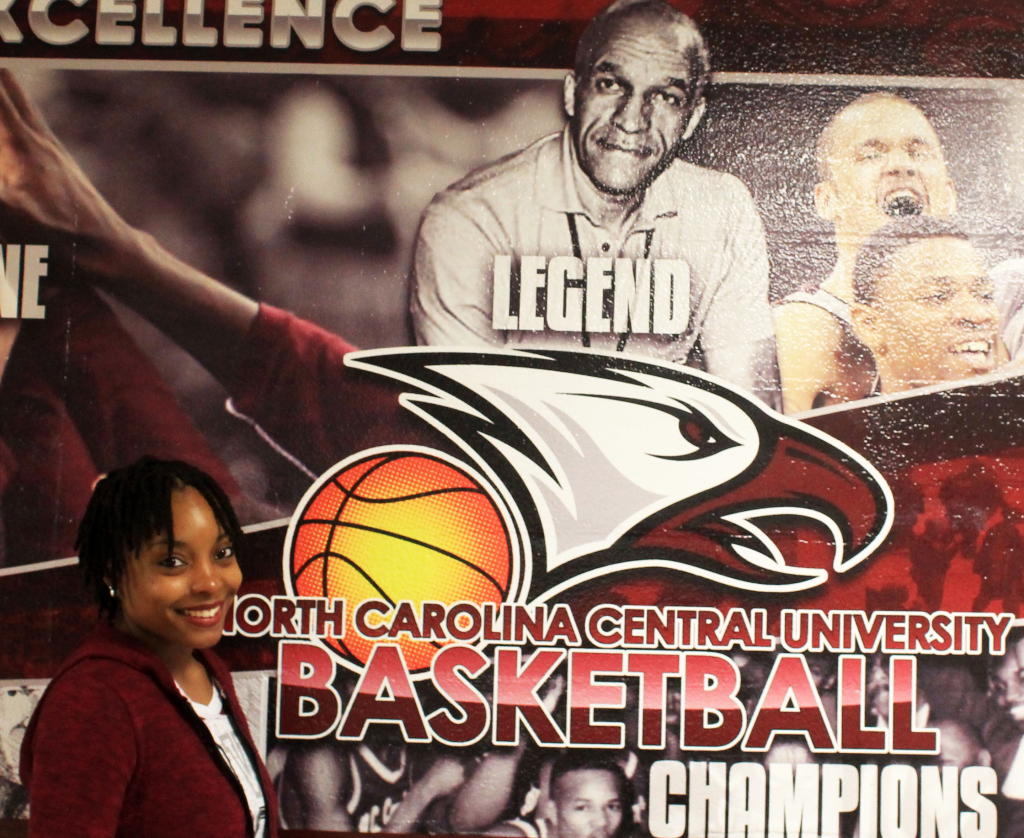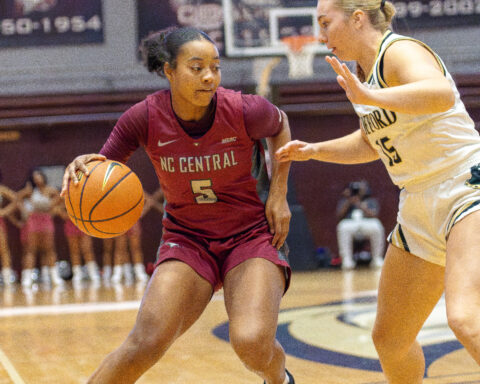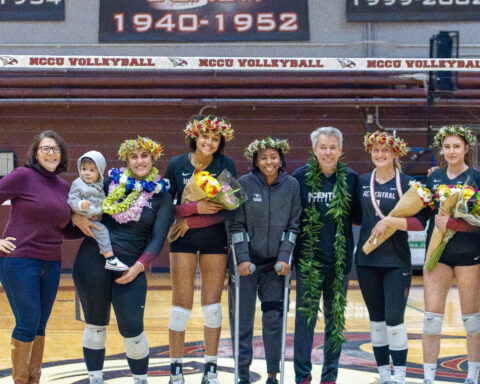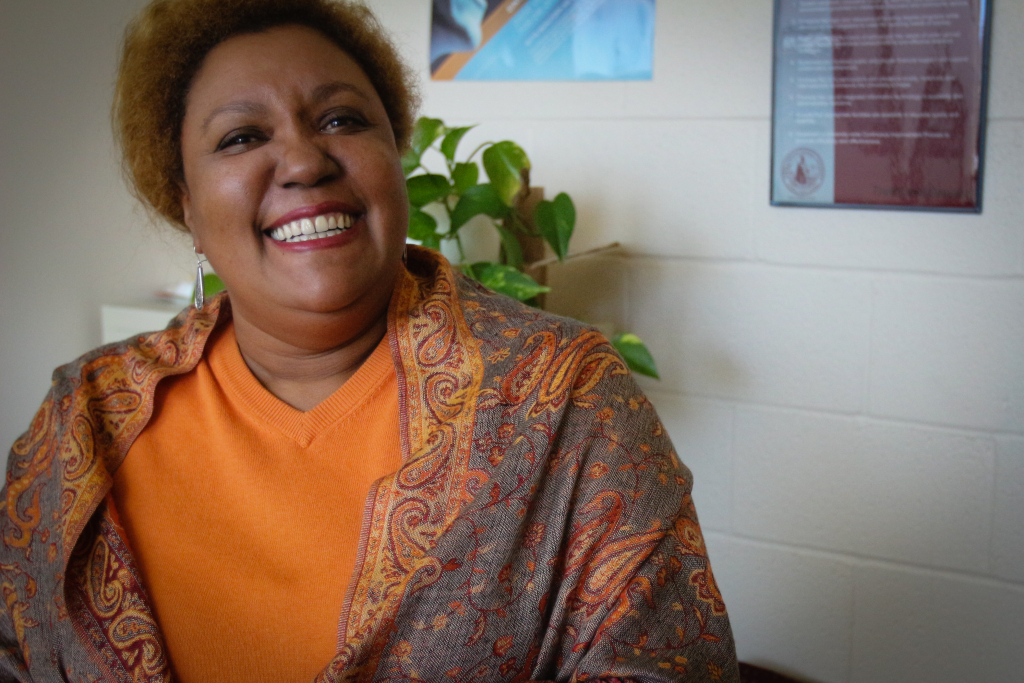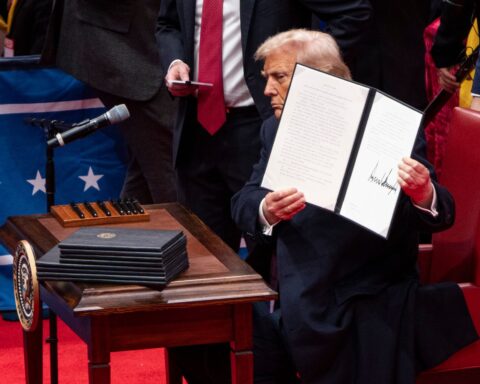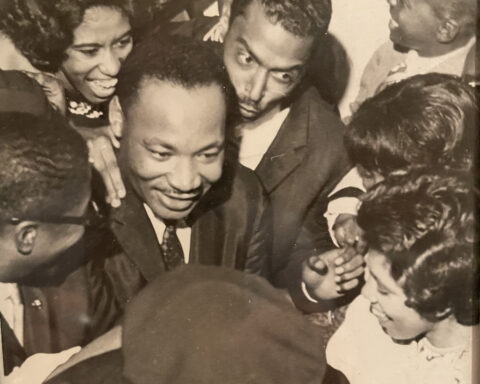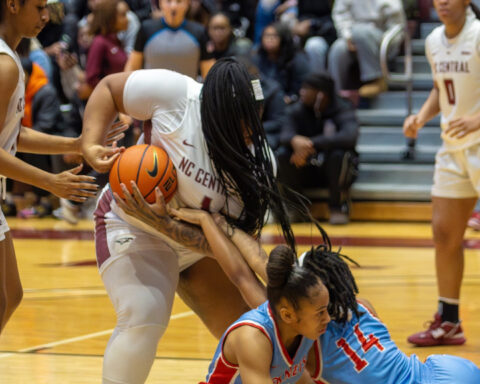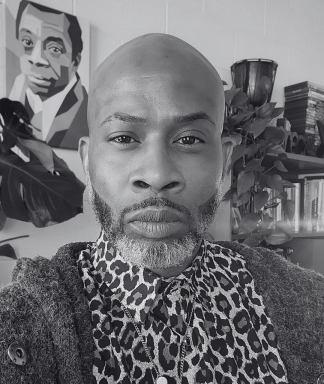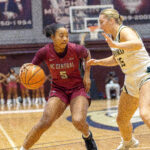When graduate history student Raja Rahim started looking for a thesis topic she found something close at hand: the life of renowned N.C. Central University basketball coach John B. McLendon.
Her research, completed last spring, became a completed thesis with the title: “King of the Court: John B McLendon and the Origins of Black Basketball at North Carolina College during Jim Crow Segregation, 1937-1952.”
Her research combines her two great passions, history and sports. “I had to figure out how to bring those together and that’s what this topic did, it sort of picked me,” said Rahim, recalling that while growing up in Richmond, Va. her father instilled her family history into her at an early age.
According to Rahim, McLendon single-handedly revolutionized the game of basketball. “There is no player, coach, or organization at any level of the game that doesn’t use a variation of the strategies that he created while here at NCC in the 1940s,” said Rahim, explaining that McLendon introduced both the fast break and the two in the corner offense, now known as the four corners.
Rahim’s thesis doesn’t just examine McLendon’s basketball strategies. It also explores the significance of segregation on the history of the game and what she calls “the reality of black basketball.”
According to Rahim, McLendon taught Dean Smith, UNC-Chapel Hill’s legendary basketball coach, the four corners at a coaching clinic. Smith would go on to integrate that strategy into Tar Heel basketball when he began coaching in 1961. But McLendon had developed the four corners to use in the first 1946 CIAA Championship Tournament. “So you do the math,” said Rahim.
“To explain why this topic is so important to me,” said Rahim, “I came up with this analogy, player is to Michael Jordon as coach is to John B. McLendon – the best to ever do it.”
Rahim initially planned to study law after getting her undergraduate degree in history, but credits two faculty members, Freddie Parker and Jim Harper with helping her cultivate her passion for history and sports. She recalls that “something clicked” when Parker, a now retired history professor explained to her that “there’s a lot of unemployed black female lawyers but there’s not a lot of unemployed black females with a Ph.D.”
“It seemed between Dr. Parker and Dr. Harper, that they already saw a path for me that I just didn’t see yet,” said Rahim. History department chair Harper advised her thesis.
Of all the research she conducted Rahim said she found doing oral interviews with people who knew McLendon personally the most rewarding. “It’s something you can’t really put into words,” said Rahim. “It was amazing.”
In addition to conducting interviews Rahim also scoured primary and secondary documents during McLendon’s coaching years at NCCU, 1937-1952. These included the Carolina Times, a local black newspaper, yearbooks, and the Campus Echo. She even traveled to the University of Kansas and Howard University to explore their John B. McLendon archives.
Rahim is now working on a Ph.D. in U.S. history at the University of Florida – Gainesville. She plans to continue her research in sports and expects to teach at a university as well as work for a sports network like ESPN as an analyst.

